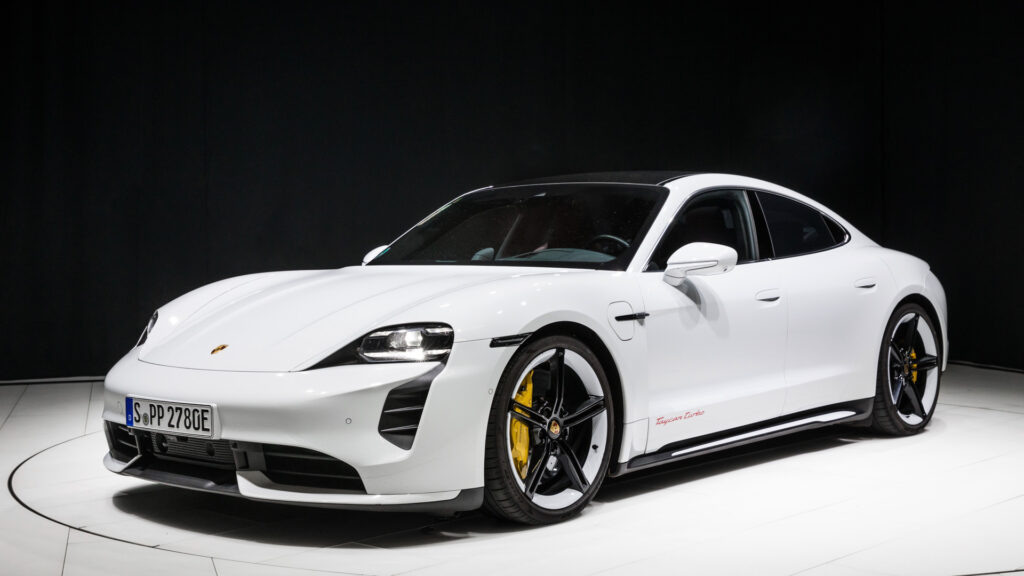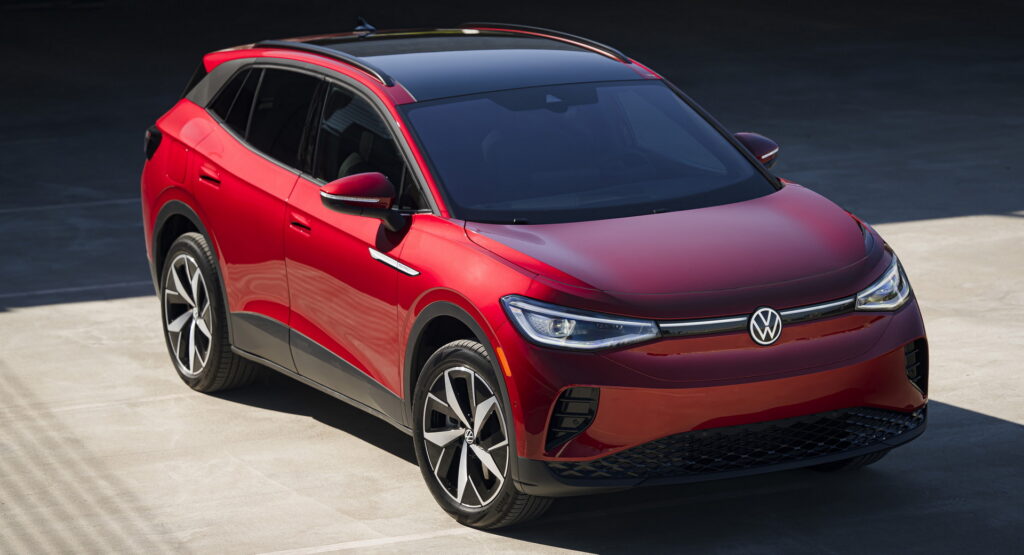Volkswagen scored a major own-goal by pioneering 800-volt EV architecture but then sticking with cheaper 400-volt tech for most models, giving its Korean rivals a serious advantage, a report claims.
Bloomberg has accused the VW Group of lacking vision by failing to capitalize on the advantage it gained when it launched the Porsche Taycan to market in 2019, the first 800-volt car. The Taycan’s sibling, the Audi e-tron GT, also features 800-volt tech, but mainstream VW Group cars like the Volkswagen ID.4 and Audi Q4 e-tron rely on simpler 400-volt architecture.
Unfortunately for the VW Group, Kia and Hyundai opted for 800-volt hardware in their mass-market EVs, and that gives them a serious advantage when it comes to charging times. Bloomberg highlights a comparison between the Volkswagen ID.4 and Hyundai Ioniq 5, two family EVs that cost around $50,000 and come equipped with 77 kWh battery packs.
While the ID.4 requires 20 minutes to add 124 miles (200 km) of electric range, the Ioniq 5 uses its 800-volt hardware to provide the same amount of charge in half the time. The high-volt architecture allows EVs to lower the current, enabling them to charge at a higher rate. VW recently claimed it has plans to improve those charge times to around 12 minutes with the adoption of newer solid-state battery tech, but that move wouldn’t happen until the second half of the decade and would initially only benefit some of the Group’s cars.
Related: VW Will Go EV-Only In America, New Electric Crossover Coming In 2026

Those slower charging times could be one of the reasons why Volkswagen’s EV sales lag behind Hyundai’s. Bloomberg reports that VW shifted only 5,300 ID.4s in North America in the first half of 2022, compared with 17,200 Ioniq 5s, and that’s despite the VW being available for longer and Hyundai being unable to satisfy demand for its car. On the other hand, it could be down to the Ioniq 5 looking cooler, being faster and just generally kicking sand in the German machine’s face.
The report also points out that Tesla’s decision to stick with 400-volt tech doesn’t seem to have harmed its sales, though the Elon Musk-headed automaker’s eggheads seem to have worked out how to extract 800-volt charge times from their vehicles running half the voltage. On an earnings call last year Tesla CEO Elon Musk and CTO Drew Baglino claimed the cost of switching the Model 3 and Model Y over to 800 volts would be high, but the advantages limited.




